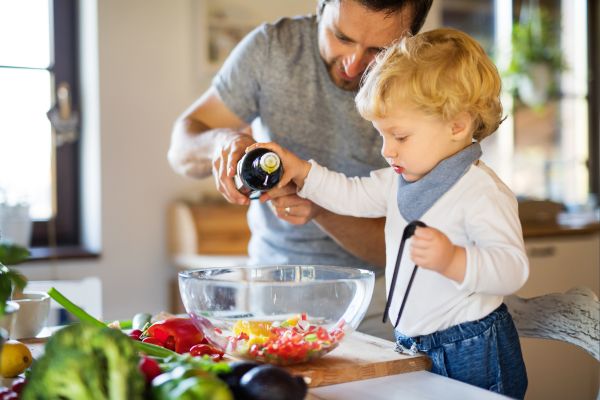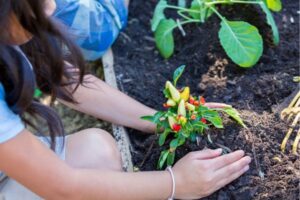Integrating Life Skills for Practical Education
Homeschooling offers a unique opportunity to craft a curriculum tailored to a child’s individual needs and interests. While academic subjects like math, science, and literature are crucial, it’s equally important to include practical life skills in the educational journey. Integrating activities that teach cooking, household management, and personal finance not only provides a well-rounded education but also equips children with essential skills for their future. In this comprehensive guide, we will delve into the significance of integrating these life skills into the homeschooling curriculum, and explore creative ways to make learning both practical and fun.

Importance of Practical Education in Homeschooling
Holistic Development
Education goes beyond textbooks and classrooms. A well-rounded education involves nurturing not only the mind but also practical skills that are imperative for everyday living. Integrating practical life skills fosters holistic development, enabling children to become independent and self-sufficient individuals.
Real-World Relevance
Incorporating activities related to cooking, household management, and personal finance bridges the gap between theoretical knowledge and practical application. By engaging in these real-world activities, children grasp the relevance of their education and understand how it directly impacts their daily lives.
Building Confidence
Mastery of practical life skills instills a sense of confidence and self-reliance in children. As they become proficient in tasks like cooking a meal or managing household chores, they develop a sense of accomplishment, boosting their self-esteem and encouraging a positive attitude towards learning.
Integrating Life Skills into the Homeschooling Curriculum
Cooking: The Classroom in Your Kitchen
Cooking is more than just a necessary chore; it’s an art and a science that fosters creativity and teaches valuable life lessons. In the homeschooling curriculum, cooking can be incorporated in various ways, such as:
- Mathematics in the Kitchen: Engage children in measuring ingredients, understanding fractions, and learning about conversions, transforming the kitchen into a math laboratory.
- Cultural Exploration through Cuisine: Explore different cultures through their cuisines, encouraging an appreciation for diversity and expanding children’s culinary horizons.
- Nutrition and Health Education: Teach the importance of balanced diets, the benefits of various food groups, and the significance of healthy eating habits for overall well-being.
Household Management: Organizing Skills for Life
Efficient household management is a vital life skill that ensures smooth functioning of a home. Homeschooling provides the perfect platform to instill these skills, such as:
- Home Organization and Cleaning Routines: Introduce age-appropriate tasks for maintaining a tidy living space, teaching the importance of cleanliness and organization.
- Time Management and Scheduling: Encourage the development of time management skills by creating daily routines and schedules, teaching children the significance of prioritization and punctuality.
- Budgeting and Resource Management: Introduce basic budgeting concepts, teaching children how to manage resources effectively, and instilling responsible spending habits.
Personal Finance: Nurturing Financial Literacy
Financial literacy is a crucial life skill that empowers individuals to make informed and responsible financial decisions. Integrating personal finance education in homeschooling involves:
- Money Management Basics: Teach children the value of money, the concept of saving, and the importance of budgeting, laying a strong foundation for financial management.
- Understanding Investments and Savings: Introduce children to the concept of investments and savings accounts, imparting knowledge about long-term financial planning and the benefits of prudent financial decisions.
- Practical Exercises in Budgeting: Assign mock budgeting tasks to simulate real-life scenarios, enabling children to understand the practical aspects of managing income and expenses.
Making Learning Practical and Fun
Learning practical life skills doesn’t have to be mundane; it can be both educational and enjoyable. Here are some creative ways to make learning an exciting experience:
- Interactive Cooking Sessions: Organize cooking sessions where children can experiment with recipes and explore their culinary creativity under supervision.
- Household Management Challenges: Turn household chores into fun challenges, fostering a sense of teamwork and healthy competition among siblings.
- Financial Role-Play Games: Introduce financial role-play games that simulate real-life scenarios, encouraging children to make informed decisions and understand the consequences of their choices.
In conclusion, integrating practical life skills into the homeschooling curriculum provides children with the tools they need to thrive in the real world. By merging the kitchen with the classroom, homeschooling cultivates not only academic excellence but also practical proficiency, nurturing well-rounded individuals equipped for life’s challenges. Embrace the opportunity to impart these invaluable life skills, shaping the future of your children in a holistic and meaningful way.


Be First to Comment